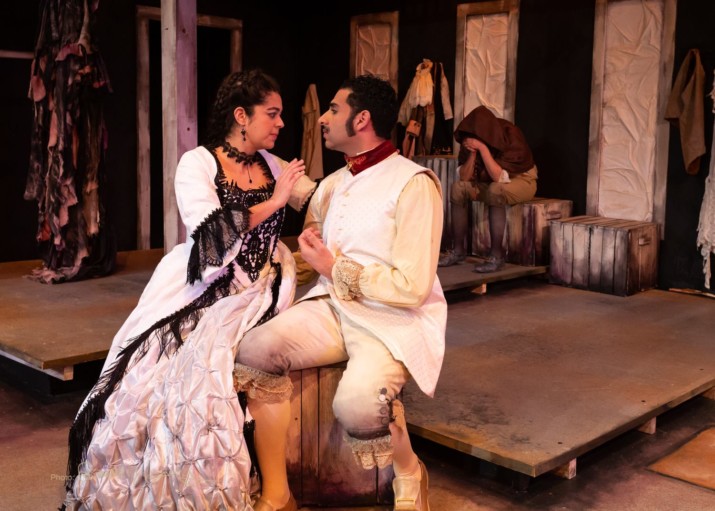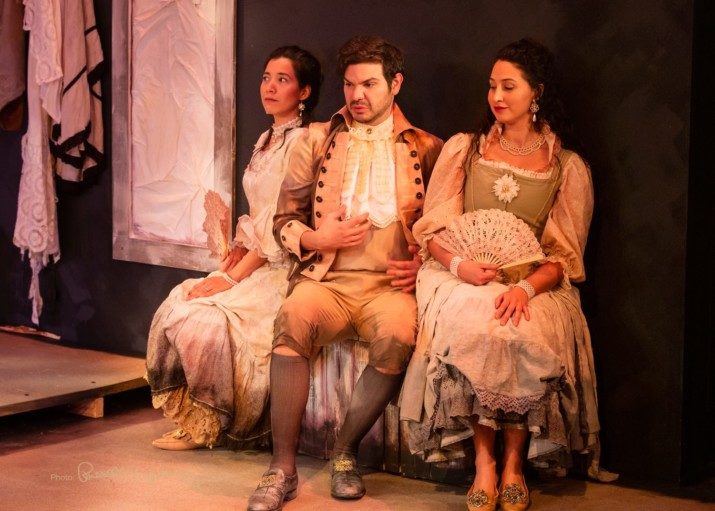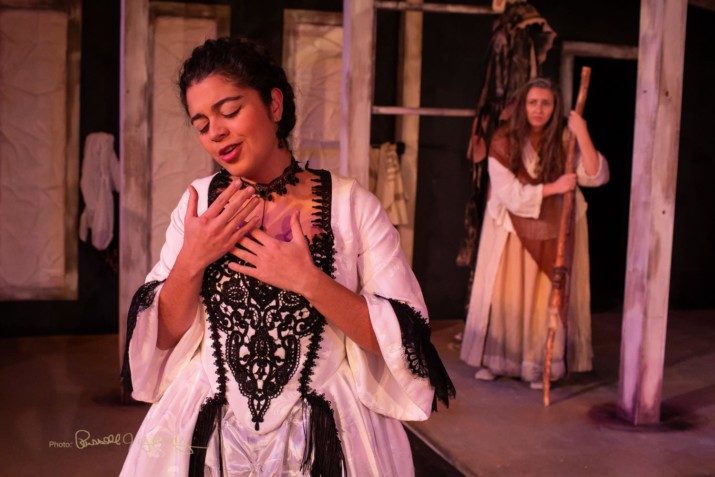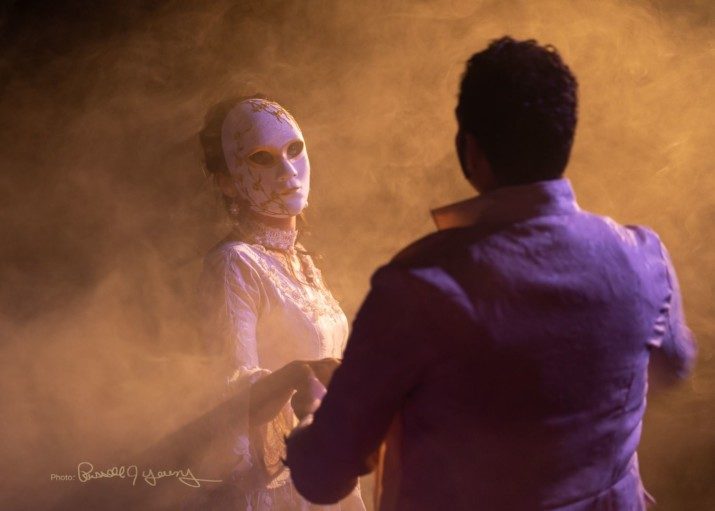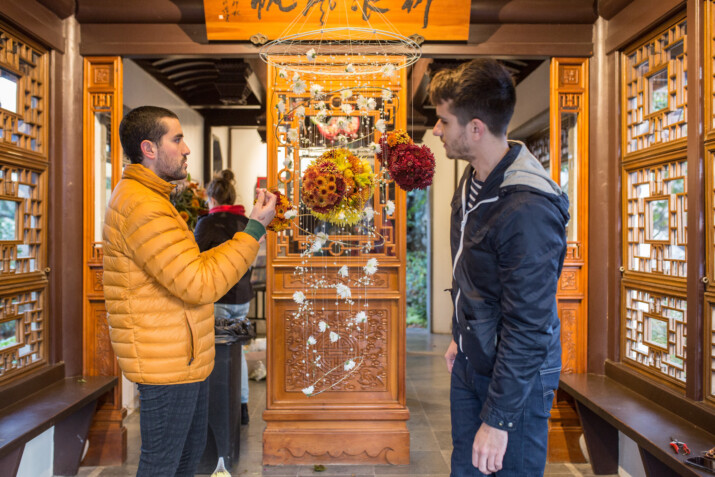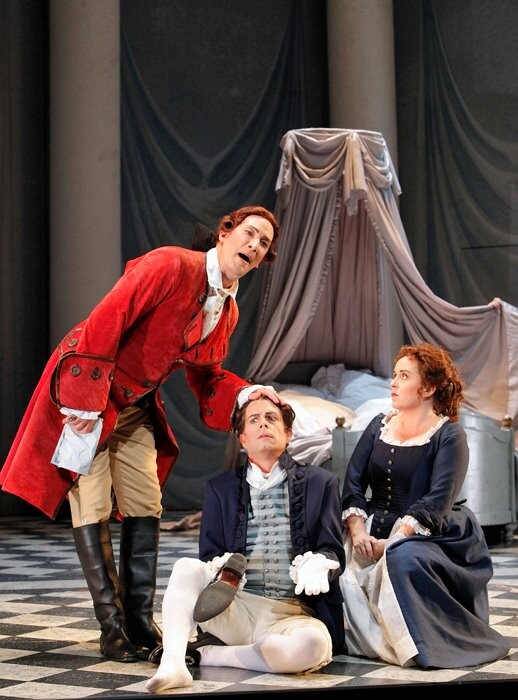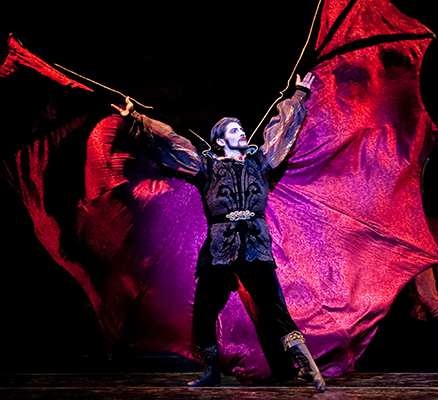Portland, OR. The Milagro Latino Theatre company is featuring The North American Premiere of La Segua, a cautionary tale by playwright Alberto Cañas Escalante. La Segua transports audience members to 17th Century Costa Rica where ambition, narcissism, and madness abound. Inspired by the legend of la Segua, Cañas crafts a story of two young lovers who are haunted by a ghost standing in the way of their happiness and sanity. The play runs through March 2nd at the Milagro Theatre, at 525 SE Stark Street, in Portland.
NOTE: La Segua is a Spanish Language Show with English supertitles
(Photo credit, Russell J Young)
Here’s more information about the show:
Performances are through March 2nd, 2019
Thursday – Saturday at 7:30 PM, Sunday at 2 PM
TICKETS: Adult tickets are $27 in advance, $32 at the door.
Senior tickets are $25 in advance, $30 at the door.
Student/ Veteran tickets are $20 in Advance, $25 at the door.
Special Pricing: Preview tickets are $18 in advance, $22 at the door
Opening night pricing: $40 for all general admission tickets
Additional discounts for groups 15+, and welcomes Arts for All pricing.
Buy tickets: 503-236-7253 or milagro.org or https://milagro.org/event/la-segua/
At Milagro Theatre, 525 SE Stark Street, Portland
ABOUT THE PLAY
In the city of Cartago in colonial Costa Rica, a beautiful woman, Encarnación Sancho, is haunted by the spectre of La Segua, who appeared to her former suitor, driving him mad. Blaming herself, Encarnación resists starting a new relationship with a new suitor, Camilo de Aguilar, a fortune-seeking adventurer who has fallen in love with her. In La Segua, Cañas takes a hard look at Costa Rican values, including ambition, hypocrisy, and follows themes of machismo, vanity, and narcissism. A cautionary tale for all to heed.
ABOUT THE LA SEGUA LEGEND
La Segua is a Costa Rican legend designed to scare men into being loyal and staying close to home at night. As men wander home, often drunk, a patch of fog appears, and in it stands a beautiful woman, with porcelain skin, long black hair, and big dark eyes.
Charmed by her beauty and forgetful of their relationships, the men offer to accompany her home. But when they turn to look at her, their dream is really a nightmare. The beautiful woman has disappeared and has been replaced by a monster with a horse’s head, accompanied by burning red eyes and big yellow teeth, terrifying the men (sometimes to the point of killing them) and in some cases making them lose their minds.
La Segua has a variety of origin stories in Costa Rica. One version says that in colonial Cartago, a young woman fell in love with a Spanish officer who eventually left her, prompting her to wander the streets of the city forever, on the lookout for men to torment as revenge. Another version relates that also in Cartago, the town’s most beautiful young woman was invited to a dance by a wealthy Spaniard. However, her family refused to let her attend due to his “don Juan” (term for a man who seduces women) reputation. The young woman lashed out at her mother and was punished by an otherworldly force who made it so that men would always be drawn to her because of her body but would flee when they saw her horse face.
ABOUT THE PLAYWRIGHT
Alberto Cañas Escalante (16 March 1920 – 14 June 2014) was Costa Rican politician, writer, intellectual, public servant, and journalist. He is considered one of the most important figures in the cultural, political, and social life of Costa Rica during the latter half of the twentieth century. Among his many achievements, he was Vice Minister of International Relations (1955–1956) and was the first Minister of Culture, Youth, and Sports (1970). In 1971, he founded the National Theatre Company (Compañía Nacional de Teatro.)
He wrote La Segua in the late 1960s in an effort to reconnect and modernize myths and legends, especially his own. The play premiered as the closing performance of the First Central American Festival of Collegiate Theatre in 1971, and was revived by the National Theatre Company in 2015 in his honor after his death in 2014.
In La Segua, Cañas draws on Costa Rican folklore to criticize the country’s attitudes toward beauty, a message impactful far beyond Costa Rica and long after the play’s 1971 debut. In an epilogue to the play, Cañas explains that he wanted to play with mythology, and he found his chance while glancing through a history book. He stumbled upon the story of two women who were accused of being witches in colonial Costa Rica. In the account, Cañas saw the perfect moment for la Segua to appear. In the play, she doesn’t actually make an appearance, but her presence is alluded to and feared.
ABOUT THE COMPOSER
Carlos Escalante Macaya was born in Barcelona, Spain of Costa Rican parents. He studied at the University of Costa Rica in the School of Musical Arts. During his studies, in 1992, he won the “September 15” Permanent Central American Contest for his piece “Violin and Piano Sonata”. In 1995 his opera “The Two of Us”, book by Carlos Tapia, was produced at the National Lyric Company. He has written music for orchestras as well as chamber music, film scores, choral music, music for dance, and a large variety of incidental music for theatre. He moved to Cape Town, South Africa in 2000, where he completed his post-graduate studies with Maestro Peter Klatzow, a former student of famed French composer Nadia Boulanger. He currently teaches at the National Music Institute and the University of Costa in the School of Musical Arts.
ABOUT THE DIRECTOR
Roy Antonio Arauz is a Costa Rican-American director, choreographer, and Milagro’s Producing Creative Director since 2016. Select directing credits: Anna in the Tropics (Latino Theatre Projects); The Gene Pool, The Temperamentals, The Hen Night Epiphany (Arouet); La Mariposa (Book-It, touring); My Mañana Comes(Associate Director, ArtsWest); Annie, The Music Man (Driftwood Players); The Humans (Assistant, Artists Rep); Éxodo (Co-director, Milagro). Choreography credits include: Female Hitchhikers(Consenting Adults, Helen Hayes Award nomination for Outstanding Choreography); Annie, The Wizard of Oz (Snoqualmie Falls Forest Theatre.) He founded and was artistic director of Arouet in Seattle from 2011–2015, and is a founding member of Theatre9/12, where he was mentored by Charles Waxberg. He is a member of the Latinx Theatre Commons Steering Committee, the 2015 Lincoln Center Theater Directors Lab, and the 2016 Directors Lab West.
LA SEGUA
By Alberto Cañas Escalante
Original music by Carlos Escalante Macaya
Directed by Roy Antonio Arauz
ENSEMBLE
Johanna Echavarría | Encarnación Sancho
David Cabassa | Camilo De Aguilar
Patricia Alvitez | Manuela/Petronila
Laura Di Mare | Baltasara/María Francisca
Enrique Andrade | José Manuel Sancho
Carlos Adrián Manzano | Ensemble
Marian Mendez | Ensemble
Elizabeth Vizcaíno | Ensemble
From Milagro:
The Milagro MainStage theatre company produces a full season of regional or world premieres, including one Spanish language play each year, as well as its long-running Día de Muertos signature production.
Teatro Milagro, Milagro’s touring and arts education program, presents its original bilingual plays and educational residencies to diverse and underserved communities across the nation. Milagro provides a home for Latino arts and culture at El Centro Milagro, where it enriches the local community with a variety of community engagement projects and educational programs designed to share the diversity of Latino culture.


